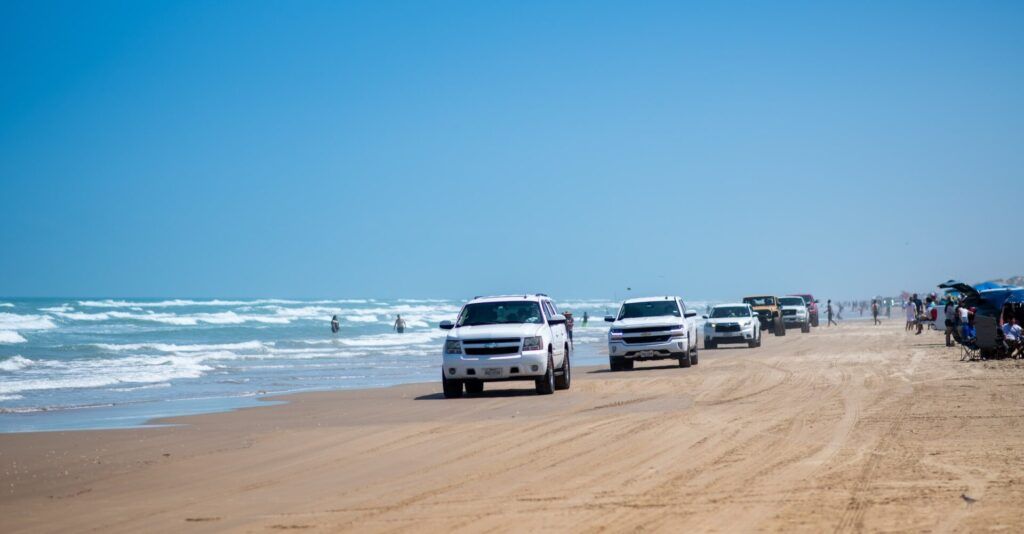SUVs emitted more carbon dioxide last year than most countries
By Damian Carrington | March 6, 2023
 Photo by nader saremi on Unsplash
Photo by nader saremi on Unsplash
Editor’s note: This story was originally published by The Guardian. It appears here as part of the Climate Desk collaboration.
The continued global rise in sales of SUVs pushed their climate-heating emissions to almost 1 billion metric tons of carbon dioxide in 2022, according to the International Energy Agency.
The 330 million sport utility vehicles on the roads produced emissions equivalent to the combined national emissions of the UK and Germany last year. If SUVs were a country, they would rank as the sixth most polluting in the world.
Climate campaigners are increasingly concerned about the impact of SUVs. The activist group Tyre Extinguishers said it had deflated the tires of hundreds of SUVs in Europe on Monday night in the run-up to the first anniversary of its campaign.
The vehicles are larger and heavier than regular cars and use on average 20% more fuel. The increased number of SUVs in 2022 were responsible for a third of the increase in global oil demand.
Purchases of SUVs have soared in recent years, rising from 20% of new cars in 2012 to 46% of all cars last year, the IEA reports. The rise continued in 2022, includes significant growth in the US, India and Europe, despite the overall number of cars sold falling slightly.
About one in six SUVs sold in 2022 were electric. But the IEA experts said: “Electric SUVs are growing in popularity, but not quickly enough to offset the increasing oil consumption and emissions of the wider fleet.
“Electric SUVs also require larger batteries to power them, so a growing electric SUV market would impose additional pressure on battery supply chains and further increase demand for the critical minerals needed to make the batteries.”
Cities targeted by Tyre Extinguisher groups on Monday included London, Paris, Berlin and Milan. The activists claim to have deflated more than 10,000 tires in the past year in 17 countries, including the US and New Zealand, using lentils to jam open air valves.
A spokesperson said: “Things were quiet over the winter but we are now emerging ready for another year of lentil-based action. We act because politicians will not take even baby steps to make our streets and climate safe. We won’t stop until these polluting vehicles are history.”
The Tyre Extinguishers said they wanted “bans on SUVs in urban areas, pollution levies to tax SUVs out of existence, and massive investment in free, comprehensive public transport”.
Electric car sales soared in 2022, the IEA said, rising by 60% from 2021 to more than 10 million vehicles. However, 29 million non-electric SUVs were sold.
Julia Poliscanova, senior director for vehicles and emobility at European campaign group Transport & Environment, said: “Carmakers are culling small cars in pursuit of profit. VW, Stellantis and BMW have all said they are moving towards selling fewer cars and focusing on more premium SUV models. But larger cars put more pressure on the planet.”
“For drivers, this means more expensive models and higher running costs, especially at a time of high energy prices,” she said. “Given the stakes, regulators should ensure European small cars don’t disappear. The best way is to tax big cars. Subsidies for electric cars should support entry-level EVs that are made in Europe.”
In 2021, the UK’s National Audit Office reported that rising sales of SUVs and an increase in road traffic had cancelled out reductions in CO2 emissions from electric car sales.

Together, we make the world safer.
The Bulletin elevates expert voices above the noise. But as an independent nonprofit organization, our operations depend on the support of readers like you. Help us continue to deliver quality journalism that holds leaders accountable. Your support of our work at any level is important. In return, we promise our coverage will be understandable, influential, vigilant, solution-oriented, and fair-minded. Together we can make a difference.
Keywords: activism, car culture, climate activists, emissions, greenhouse gas emissions, suvs, transportation
Topics: Climate Change















I have a Toyota Landcruiser. An old one. It costs a significant amount to run, perhaps AU$160 to fill with fuel. I have a limited income – the aged pension. Really, I can’t afford to run it and I can’t afford to upgrade to something less expensive to run. My principles are offended when I do drive it. There is no public transport or shops where I live. Accordingly, I only drive when it is necessary.